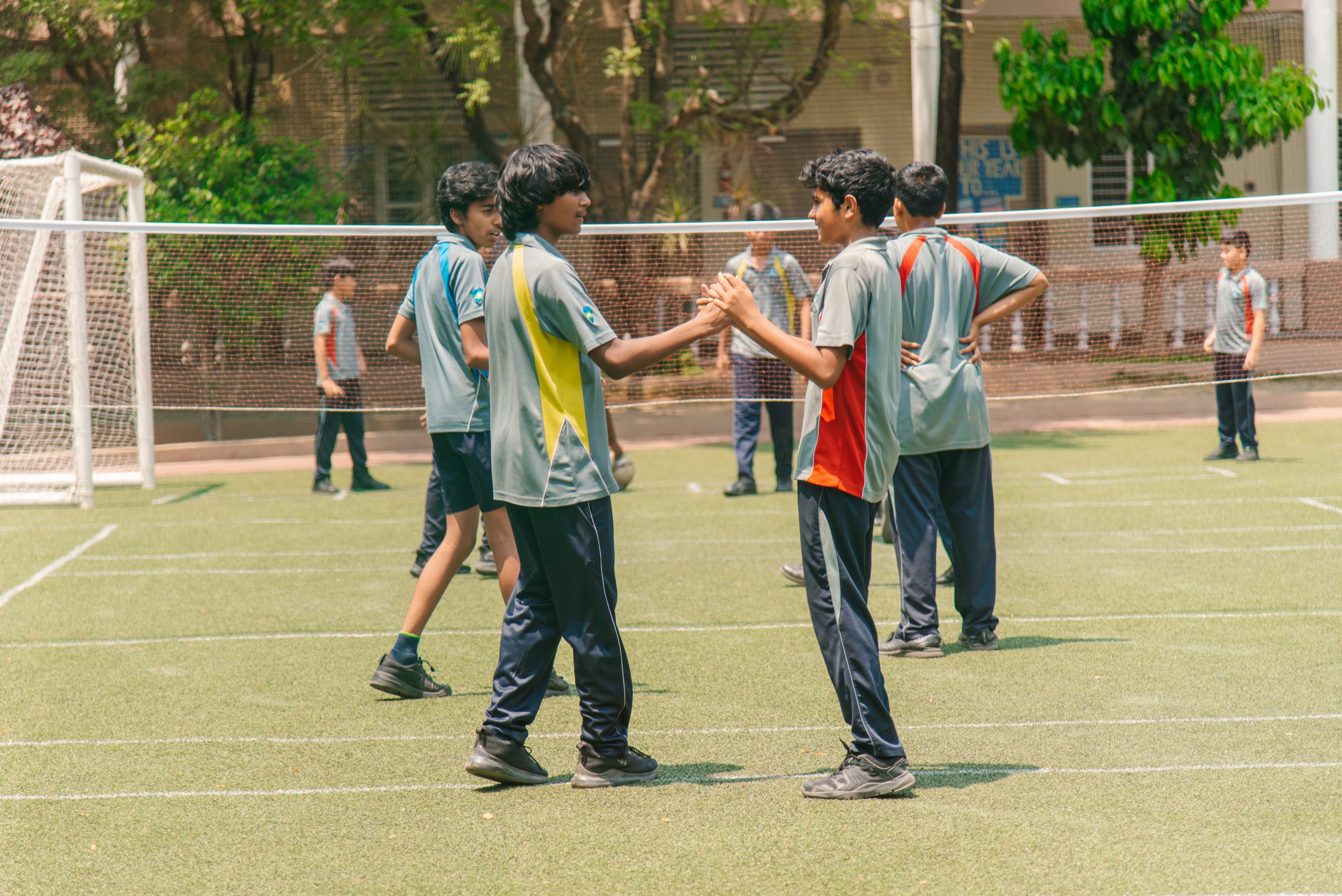There is little debate that we are witnessing a general decline in children’s physical activity. Whether it be joining clubs, cycling or playing in open spaces, increasingly there is an inclination for children to choose screen time, social media, and sedentary engagement over physical activity and sports.
International schools in Bangalore place great emphasis on the space outside of academics – a space free without formal assessments. This balance not only fosters their love for physical activity but also helps them build self-confidence, resilience, social skills and self-awareness.
Engaging in sports allows children to explore their passions, test their abilities, and develop their inclinations which inform choices. These experiences contribute to their growth, and play a significant role in shaping the individuals they become as they mature; they represent an important opportunity to develop a love for participation in physical activities which will support engagement with healthy habits for a lifetime. Participating in sports is an excellent way for children to learn valuable life skills such as teamwork, perseverance, and discipline, all while enjoying the excitement of the game.
Why promote healthy competition?
It’s important to remember that the process—the practice, the learning, and the growth—is more significant than the end result, especially in the context of sports. The discipline, dedication and persistence of practice to achieving ‘better’ outcomes translates positively into other life domains.
However, forcing participation in a sport in which children do not have an interest comes with risks, creating a negative relationship between the child and activity, and risking a compromise to a child’s discovery of enjoyment. Pushing them into something for which they haven’t developed enjoyment can create stress, cement disinterested and generate resentment. Over time, this pressure can create a sense of dread towards sports, transforming a fun and rewarding experience into something they feel obligated to do.
The focus for development should start within the enjoyment of play. With this in place, the development of skills, investment of energy and desire to improve will take place naturally and consequently, with incremental formal intervention being subsequently introduced.
Allowing Exploration and Flexibility
Just as children should not be confined to a single academic path, we are serving children by providing the opportunity to explore different sports. Specialising support and intervention early in a child’s development can co-exist with engagement with a range of sports, and should not replace it. Further, it is important to allow children to change their interests, even if subsequent to considerable investment of time in a particular sports specialism. Being one of the best international schools in Hennur, Legacy allows children to try out a variety of sports until they find one that truly resonates with them. This freedom to explore helps children uncover their true potential and to develop a better understanding of their whole self, while allowing them to enjoy the journey. When children feel like they are in control of their choices, they are more likely to remain engaged and motivated.
A Healthy Perspective on Competition
The Best Schools in Bangalore view sports as an opportunity for personal growth and enjoyment, rather than a singular focus on winning. While healthy competition can be motivating, it’s essential that it comes from a positive place. At the same time, the pursuit of excellence in sports on the highest stage is an important part of a school’s support of its students, but is not what motivates many students. Pressure can push children to excel, but it should always be framed in a way that supports their self-confidence and helps them maintain a sense of control over their experience.
By promoting a healthy approach to competition for all students, one that emphasizes enjoyment, learning, and personal achievement rather than success by comparison to others, children can develop a lifelong passion for sports that benefits both their physical, mental and emotional well-being as part of a lifestyle commitment. Encouraging children to pursue sports for the joy of playing, rather than for the sole purpose of winning, can help enrich children’s experience with joy and a positive relationship with physical exercise and all the benefits it brings.


